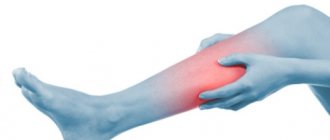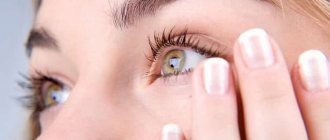We remember very well Pushkin’s enthusiastic lines dedicated to autumn.
Many people admire this time of year, experiencing an emotional uplift. But there are also those who are not at all delighted by the beauty of autumn nature. On the contrary, such people acutely experience the season of withering, falling into autumn depression. Starting this conversation, I would like to understand the terminology a little. Indeed, feelings of sadness, fatigue, drowsiness, and apathy can visit us more often in the fall than, for example, in the summer. There are completely natural reasons for this (we’ll talk about them a little later). Therefore, you should not, having felt some kind of elegy, immediately declare autumn depression.
The other pole, where truly suffering people are found, is seasonal exacerbations of diseases. By the way, not only mental illnesses, but also any chronic illnesses. In such a situation, it is necessary to take urgent measures - treatment, active prevention.
So what is autumn depression?
Any depressive state is a complex of symptoms. Namely:
- impossibility or serious difficulties in experiencing pleasure (anhedonia);
- negative assessments of what is happening around and oneself;
- decline in physical activity;
That is, if you just want to sleep more, this is not depression, but a completely normal state in the fall.
Its duration also helps to recognize depression. If circumstances around a person change, but his mood remains depressed, this may be a sign of disorder.
Sleep and rest
Due to a lack of vitamins and sunlight, people get tired quickly in the fall. During working hours, many people feel drowsiness and apathy. Therefore, healthy sleep is of great importance. Don't stay up late. It's important to go to bed early. In addition, you should pay attention to your rest. If you have the opportunity to go on vacation during this period, then you should do so. When vacation is not possible, it is advisable to complete the main work tasks in the first half of the day, and leave easier tasks for the second half. Regular yoga, meditation, and going to fitness clubs will help you stay alert throughout the day. And dancing can energize and improve your mood.
Is depression the fate of women?
People often hear arguments that it is mostly women who suffer from depressive disorders. This is not only incorrect, but also harmful, because such an attitude towards the problem becomes the cause of more severe illnesses that affect the stronger sex.
After all, it turns out that a woman can admit that “I’m depressed,” but a man can say that – it’s a shame!
Indeed, women are more emotional and more susceptible to mood swings. Hormonal levels in women change dramatically several times in their lives and constantly undergo noticeable fluctuations throughout the reproductive period.
But this is not so much a factor of predisposition to depression, but rather a system of protection against it. After all, as we remember, this disorder is characterized by the persistence of negative affects. But a woman’s emotional background is characterized by mobility.
A man simply does not have such a defense mechanism. Therefore, if he has suffered, for example, autumn depression, he experiences this disorder much deeper and more painfully. And public opinion also forces him to hide and aggravate his condition.
Therefore, signs of depression in men most often manifest themselves in “psychosomatics”. In other words, without being able to express his feelings, a person becomes ill. It must be emphasized that this is not a simulation - but a real disease. The more difficult it is to understand its deep, psychological reasons.
As a rule, signs of depression are more obvious in women. Especially when it comes to seasonal disorders, they can be easy to recognize.
However, if depression in a woman has deeper causes and lasts longer than one season, it also leads to illness.
Definition of symptoms
There are the first signs of autumn illness: unstable emotional state, impaired attention and memory, changes in normal behavior. Symptoms of autumn depression are divided into:
- sad mood at any time of the day;
- indifference to any actions, even to those that were always done with great love;
- reluctance to make contact with family and friends, or an excessive desire to talk about your problems;
- loss of strength, reluctance to do usual work or perform it poorly;
- absent-mindedness, fussiness and unfinished business, which leads to dissatisfaction;
- excessive demands;
- sleep disorders: difficulty falling asleep, frequent waking up at night, early awakening;
- changes in eating habits;
- the appearance of fears, anxiety;
- constant analysis of life, in search of evidence of its uselessness, leading to suicidal thoughts.
In autumn, depression manifests itself in several symptoms, varying in intensity of expression.
Causes of autumn depression
Why did the idea of the seasonality of this disease even arise? Alas, autumn really brings with it a number of reasons that significantly affect the human condition. We don’t say “negatively influencing” - after all, not everyone experiences these changes painfully.
It only seems to us that man has “conquered” nature and lives in his own rhythm. In fact, you and I are subject to all fluctuations outside and within us - from heartbeat and breathing, to the change of seasons. And in the fall, the pace of life slows down, nature prepares for “hibernation.” Daylight hours are becoming shorter and shorter, which immediately affects a person’s hormonal background - the body begins to increase the secretion of melatonin, which plays a huge role in regulating the work of many organs and systems. Among other things, it promotes relaxation, slowing down life processes, and falling asleep (physical lethargy!). By the way, this same substance actively resists stress, balances and improves emotional state, prevents aging, and improves immunity.
Some say that autumn depression is caused by gray colors - cloudy skies, rainy days, withered grass... One could argue endlessly, proving that autumn gives our eyes unprecedented beauty and even special brightness. But this is meaningless: a person in a depressed state simply does not see, does not experience pleasure from the environment (anhedonia and negative assessments!).
There are also so-called social reasons for the autumn blues. This time of year in European culture is the season of summing up (“counting chickens in the fall”!). Many social processes (study, for example) begin after the summer holidays. Therefore, a large number of people experience special tension in the fall - stress.
But, let us repeat once again, no stress is scary for a person who is able to respond adequately to them. But to someone whose condition is destabilized, even slight tension may seem like an unbearable burden.
At-risk groups
Anyone can be at the mercy of seasonal depression, regardless of temperament, income or social status. However, the highest risk group can be formed from:
- lonely people;
- employees in the service sector (they often have an overabundance of communication, so “psychological burnout” often occurs);
- people returning to the workplace after vacation (their sense of freedom is being squeezed by the constraints of daily work and deadlines).
It is worth noting that women are more susceptible to emotional troubles: their bodies, unlike men’s, produce half as much serotonin.
Consequences of autumn depression
“Just think, autumn blues! - many will say, - Is it really necessary to get hung up on it and pay so much attention? As autumn passes, so will it!” Alas, depression is terrible not only (and not so much) for its manifestations - the main harmfulness of this condition lies in the consequences.
Let's start with the fact that a constantly depressed state simply interferes with a person. When you are depressed, it is difficult not only to work, but even to carry out routine tasks. Often people in this state become sloppy and eat poorly.
Appetite disturbances are one of the important consequences of depression. Moreover, some lose interest in food - this is where anhedonia manifests itself. And others, on the contrary, “eat up depression.” The result is disastrous in both situations.
Other consequences of depression are revealed to us by psychosomatic theory. It shows that psychological imbalance involuntarily provokes the development of many diseases. The most unpleasant thing is that the treatment of such ailments does not bring complete healing - unless the patient’s mental problem is discovered and resolved. And any disease itself is a powerful generator of depression. In general, a vicious circle of suffering arises here, which is extremely difficult to break.
This raises a very important practical question:
Bad habits and negativity
Do not abuse alcoholic beverages and smoking. Nicotine and alcohol only tone you up for a while.
During the autumn period, it is advisable to avoid things that do not bring positive emotions. You shouldn't spend the day listening to your friend or colleague complain about life. It is important to watch less sad films and read books with a negative plot, and avoid watching TV shows that discuss unpleasant events. Instead, it is important to fill your life with positive things. For example, look through photographs taken in the summer, go to exhibitions and theaters, and replace the wallpaper on your computer with happy ones.
How to properly survive autumn depression?
Let's say you have discovered several signs of this disorder. The path to liberation from it must begin with awareness of the problem.
- If you don’t want to share with anyone, admit clearly, at least to yourself, that you have suffered from autumn depression.
- Make an action plan: develop a schedule for the current week, plan things out. Moreover, be sure to allocate more time for walks and meetings with pleasant people. Stick to this plan religiously.
- Balance your diet. Load up on brightly colored fruits and vegetables. Don't forget about fermented milk products - kefir, yogurt. Be sure to allow yourself desserts - especially chocolate (you can eat low-sugar chocolate), honey. Avoid hard-to-digest foods and overeating.
- A separate issue is physical activity and sleep. Choose exercises that you enjoy. This could be jogging, swimming, fitness, or long walks in a beautiful park. Physical activity is an excellent antidepressant. Be very careful about your sleep - take a relaxing warm shower, ventilate the bedroom, darken it as much as possible, turn off all appliances (especially the TV!).
- Communication with loved ones is an invaluable source of positive emotions. If you have such people, don’t hide from them. And you don’t have to tell them what’s bothering you.
If a week of such a planned life does not change your well-being, it is better to consult a specialist. Blues is the blues, but it tends to develop into depression - an insidious disease! And the longer you delay starting serious treatment, the longer the process of getting out of this state will be. Remember, a visit to the doctor is a completely normal occurrence, because depression is the same disease as panaritium, diarrhea, and furunculosis. Do not give in to the feeling of shame - it is false. And if you apply in a timely manner, you will be surprised how fast and effective help can be!
We do not have the right to describe medications and treatment regimens that are prescribed for depression. Let's just say that medicine has made a huge step in understanding the mechanisms of this condition and the ability to overcome it.
Treatment of depression with folk remedies
The path out of the autumn depression is outlined in general terms. Traditional medicine can be added to these measures:
- Tonics - tinctures of ginseng, eleutherococcus - they should be taken in the morning and afternoon.
- Natural immune stimulants - for example, honey with beebread, shiitake mushroom.
- Relaxing agents - pine baths, tinctures of valerian, motherwort.
- Aromatherapy - using essential oils will help regulate your mood and physical well-being. Morning and afternoon, tone yourself with citrus oils (grapefruit). And before bed, inhale a relaxing aroma (cedar, bergamot).
Symptoms
The main signs of seasonal depression:
- feeling guilty;
- sad thoughts;
- causeless fear;
- high fatigue;
- excessive emotionality;
- sleep disorders or insomnia;
- sudden mood swings;
- increased cravings for high-calorie foods.
Some symptoms are more pronounced, others less so. In general, autumn depression occurs in mild or severe form.
You can successfully deal with its milder degree on your own, but if the symptoms have not changed and the condition is only getting worse, you need to use the services of specialists.










